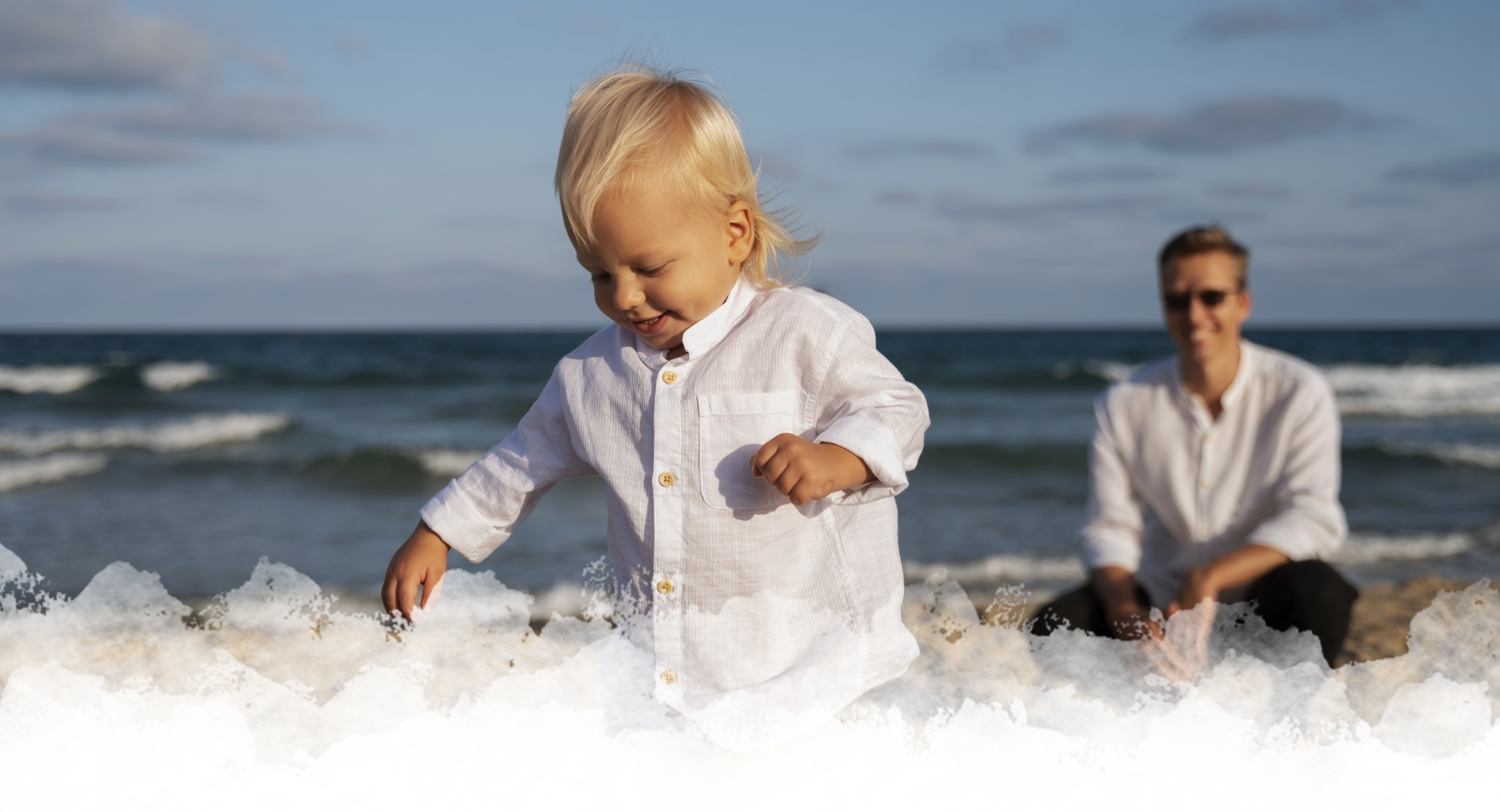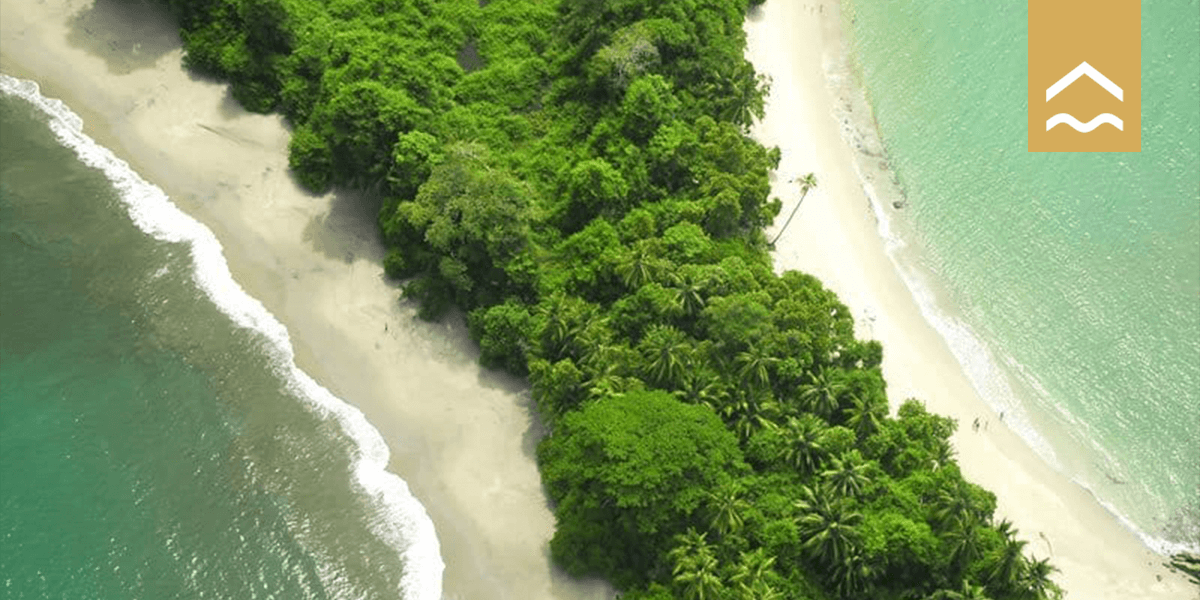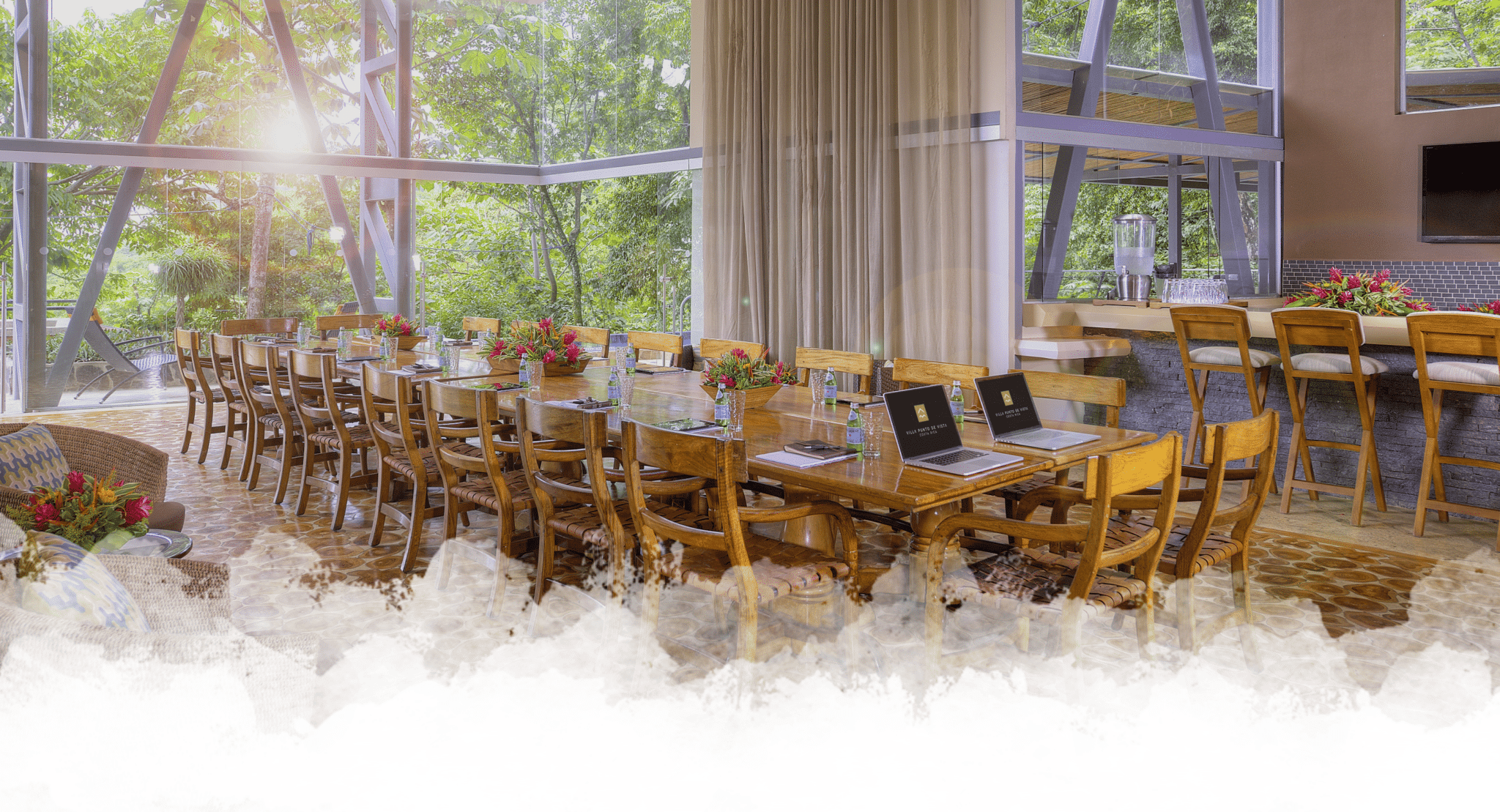Jessica Reilly and Josh Moman – Sailing for Climate
In June, Punto de Vista was honored to host Jessica Reilly and Josh Moman, two traveling scientists on a mission to connect coastal communities and study climate change, via their research project, Sailing for Climate.
We have shared values: At Punto de Vista, we pride ourselves on caring for our environment, honoring local habitats, and protecting Manuel Antonio’s flora and fauna. We appreciate Jess and Josh’s work and contributions to the study of climate change – how important it is to understand its causes and contribute to creating solutions. From small to large, the villa works to do our part: building monkey bridges, sponsoring the local sloth and monkey rescue center, and working with the WWF & Rainforest Alliance on charity events, among other projects.
We interviewed Jess about her experience with Climate for Change, as well as her time so far in Manuel Antonio. Here’s what she had to say:
Who makes up the crew of Oleada?
Sailing scientist, Jessica Reilly, and sailboat guru, Josh Moman, join canine crew member Ulysses Cousteau, the “sea dawg,” aboard the sailboat Oleada (Spanish for “swell” or “wave of change”).
Where, when and how was the idea of Sailing for Climate born?
In 2014, Jess was at UC Berkeley’s Energy & Resources Group, in the process of finishing her Master’s Degree and looking toward the future; she knew she wanted her PhD to be something applied and practical, as well as something that touched on her roots as an adventure guide.
In other words, Jess wanted her PhD to be at least a job that served communities, and hopefully an adventure – preferably, both. From there, it wasn’t a big jump to develop the project: approximately ¾ of the 600 million people who live in Latin America and the Caribbean, live within 100 miles of the coast. These are coastal communities that depend on the sea not only for food, but for their livelihoods. The stakes are high: drought, flood, and heat are already taxing the oceans, and sea-level rise, ocean acidification and increasingly powerful storms threaten the lives and livelihoods of millions.
And so, Jess developed the idea of Sailing for Climate, to access remote areas and hear stories that would otherwise never be shared – local solutions to global problems. To record the thoughts and solutions of people who have lived and worked in coastal villages for generations, who have an incredible knowledge of climate change and how to adapt to changes in the ocean.
The pair’s two-year project is funded by the Institute of Current World Affairs.
How long has Sailing for Climate been on the seas?
The project has been in the works for two years. Jess purchased Oleada in May 2014 – the day she and Josh met, actually. Together, they restored the boat; after Josh left Berkeley in January 2015, he sailed down the CA coast to meet Jess in Mexico, where she was living and studying on a Fulbright.
Jess and Josh sailed around Baja California and to La Paz, where Jess finished out her grant. Then, in the summer of 2015, they sailed north in the Sea of Cortez before heading south, following the Pacific Coast of Mexico and Central America before dropping anchor in Costa Rica.
Landlubbers generally think of climate change in terms of how it affects our shorelines, weather, and other land-based effects. But Climate for Change focuses on changes beyond the shore; what are some of those changes?
Jess and Josh interview as they travel. Anywhere they can safely anchor, they go ashore to speak with people who have lived there their whole lives, or who are dependent on the ocean. On their minds: what are the perceived impacts of climate change, and how do these communities adapt? And according to Jess, the interesting thing is that these communities often don’t realize they’re adapting, even when they are. These interviews suss out the first conclusions.
Before they began, Jess expected to hear about sea level rise, but what they most often hear about is sea temperature rise, which has a huge impact on fishing. Sailing during an El Niño year may skew their data, but it has really given insight into how climate change is affecting people – how bad the fishing catch really is.
But sea surface temperature changes go beyond fisheries: temperatures affect tourism, such as whale-watching. When whales don’t have anything to eat, they go elsewhere and the community is no longer a destination for whale-watching tourism. These changes represent a large community impact, especially on small economies.
Does Jess have a favorite moment (or experience) so far?
Jess laughs, then explains that some of the things that come to mind first are the really awful experiences, like very tense sails through storms. For example, in the northern Sea of Cortez, they experienced a seemingly unending (and terrifying) 11-hour thunderstorm – actually, the first time Jess dodged thunder and lightning at sea. But, they survived and even did well in the face of terror, so it ended up being a positive experience.
One of the pair’s favorite things while offshore, when they can’t even see the land, are the pangas/lanchas (small fishing boats) that come up to them. The best times are when the fishermen sidetrack to meet up with Jess and Josh as meeting on the high seas can be a very moving, very intimate experience.
Have they had any a-ha discoveries yet? Which were most interesting, wonderful, astonishing or devastating?
Jess laughs, explaining that when you live on a sailboat, “there are so many devastating moments. The forever question: Seriously, is that broken again?!”
But the most a-ha moment to date was when they were visiting Isla Isabel, 20 miles offshore in Mexico. They were speaking with Julio Mata and at the end of the interview, he was talking about what he believed were sources of problems for the ocean. But instead of talking about the ocean, Julio said it all starts with the rivers. This set off a major a-ha! for Jess, because she normally thinks of the sea itself, but the oceans are about more than the oceans themselves; they depend on the shore, on runoff, on inland waterways.
This is why Jess focuses her discussions on local conversations; these communities have insight into the land and the sea, and how the two impact each other.
Jess and Josh recently docked in Manuel Antonio to rebuild their sailboat engine. Here’s what they have to say about our seaside town:
The newlyweds have now been in Manuel Antonio for two months, which is, aside from La Paz, the longest they’ve stayed anywhere. They say it’s been easy to make friends here locally, and they’ve been treated really well. They love going to the beach in the early mornings with the dog, to run and play and surf. It’s a nice routine they’ve gotten into and Jess says, “it’ll be hard to leave.”
Additionally, they explain that Manuel Antonio is, visually, so different from anywhere they’ve ever visited. To have the cliffs and jungle and howler monkeys and toucans, all right next to the beach and boat – that’s really rare. They’ve wholeheartedly embraced it.
And what do they think of Costa Rica?
They haven’t yet seen as much of Costa Rica as they’d like. They completed their visa process in Playas del Coco, a place they really enjoyed. The people of Guanacaste were very kind and proud. Oleada was then planning to anchor in Samara but hit a current, so they ended up sailing overnight – again, in thunderstorms, terrifying in the dark! – around the Nicoya Peninsula and into Bahia Ballena. They anchored there for a few days, and found it to be serene and beautiful. Then, on to Herradura and Quepos.
Now that they have a rental car, they’re planning to explore inland and further down the coast.
Congratulations are in order – Jess and Josh recently got married at Villa Punto de Vista! How was the dream wedding?
Jess enthuses that their Manuel Antonio wedding was much more than they ever expected it to be – the comfort, and the luxury, and the whole package was all incredible. In particular, they appreciated the amazing social spaces to reconnect with all of their best friends, who came from all over to celebrate their special day. Jess enthuses, “I’ve never had such attentive and thoughtful people helping us build an experience. Because of the villa staff, our whole group had this incredible, cohesive, and relaxing time.”
Jess and Josh got married on the beach below the villa, and had their reception at Punto de Vista. Josh proposed on Christmas Day 2015, in northern Mexico. But because they had a year and half left of their ICWA grant, they couldn’t figure out how to schedule the wedding amid their expedition. Sailboating life is not friendly scheduling anything, let alone a destination wedding. In fact, in sailing, you either decide on a place or a time, but never both.
Well, almost never. Because it just so happened that for insurance reasons, Oleada was headed to hurricane-free Costa Rica in June (hurricane season hits north of Costa Rica), and Punto de Vista had one free week. The stars aligned.
While at Punto de Vista, the newlyweds were able to relax a bit and enjoy the wildlife:
There were so many incredible wildlife experiences, but one favorite: every day at 4:00 p.m., a pair of toucans would sit right in view of the kitchen/dining area. Jess is a self-described “closet geeky birder,” so she delighted in their daily toucan date. In fact, as a wedding gift, Josh purchased her a spotting scope, and Jess can’t imagine a better place to have inaugurated her present. Her closing thought, “Most birders have to get up before dawn to see anything. At Punto de Vista, you can sleep in! The birds are there all day.”
What is the ultimate goal with Sailing for Climate? What do they hope to achieve?
After the grant is up, Jess and Josh hope to continue sharing the story, as it relates to climate change, to a general audience – in both English and Spanish.
Jess will be finishing her PhD, combining story and science. In the long-term, she’ll continue to build her data and local knowledge, and her interactions, to serve the people who live in the coastal communities of Latin America. She says, “This is our home now.”
So what does that look like? Well, they’ll continue to publish a book, articles and, hopefully, a dissertation that is more than academic – something that is interesting and readable. In Jess’s words: “Science should be accessible.” She plans to serve these coastal communities as an expert for international funding agencies and local organizations alike.
Furthermore, Climate for Change will work to connect all these people who live on the coast, so they can inspire each other and find funding. Because people often feel isolated and alone in their struggles, but the reality is that Jess and Josh keep hearing the same things as they travel down the coast. So, citizen science projects, or a mobile app, or the website, or conferences – things to help people keep their heads above water.
If they could share one lesson, one takeaway, what would it be?
Jess laughs, “If you’re unsure if you should marry someone, go sailing with them. You’ll find out quick!”
Sailors say that one sailing year equals eight land years. It’s a challenge unlike most modern jobs, though strangely similar to parenting: you’re dealing with weather from above and below; the boat breaks all the time; and wow, the mood swings – euphoria to terror in a second. Not to mention, the sleep deprivation… There are all these moments when you can’t believe all the love and joy you’re experiencing and the next, you’re more frustrated you’ve ever been. But it’s all worth it to figure out how to improve the lives of coastal residents in Latin America’s changing climate.
—
Thank you, Jess and Josh! At Punto de Vista, we love and appreciate the work you’re doing and the message you’re sending. We will follow your journey and keep updated on your progress.
If you’d like to keep up with Jess and Josh, follow their trip online at Climate for Change, and consider donating to support their mission.
















